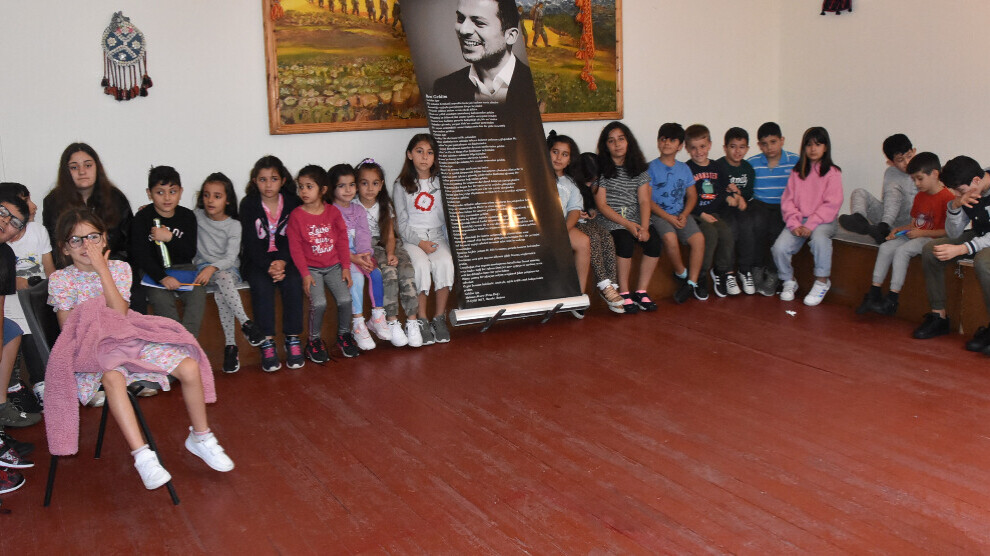The Fîraz Dağ School in London has started its new year of education. The opening ceremony coincided with the fourth anniversary of the death of journalist and filmmaker Mehmet Aksoy, whose nom de Guerre was Fîraz Dağ. The educational institution is housed in the premises of the Kurdish social center. Mehmet Aksoy worked at the Media Center of the People's Defense Units (YPG) and worked on a documentary about the liberation offensive of the city of Raqqa. On 26 September 2017, he lost his life in an Islamic State attack.
Aksoy came from North Kurdistan, but grew up in London and was involved in many areas of the Kurdish movement. He had great talent and an unforgettable character. Media education courses were organised by the guerrillas in the Kurdish mountains and in Rojava. Last year in London, a course program for children was set up. Thirty pupils between the ages of five and twelve took part in that first course. Forty children have registered for the new year of education and will receive tutoring in various subjects on the weekends.
"The Fîraz Dağ school symbolizes our solidarity with Mehmet Aksoy, his attitude towards life and his ideals," said the teacher and project coordinator, Sultan Kığı. Kığı devoted herself to the planning and implementation of the project. Today there are a total of eight teachers and a psychological counselor who are committed to helping the children. “It's not just about tutoring. We convey to our students the culture of Hevaltî, comradeship, which was so important to our friend Fîraz, and the understanding of sustainable education with the central pillars of democracy, science and community.”
Zeynep Aksoy, Mehmet Aksoy's mother, had also come to the opening of the new educational year. She was received with Kurdish singing by the children. The whole day was spent with cultural activities. The organizing committee of the Kurdish Film Festival in London showed two films, there was also a musical program and lots of children's games that were great fun for the little ones.
The Fîraz-Dağ school
The Fîraz-Dağ school, with eight teachers and a psychological advisor, offers tuition in English, music, mathematics, literature and communication. The classes are given on the weekends, and the children are also taught Kurdish culture and history. The school does not receive any government support and is based on the work of volunteers. The parents of the students have now founded their own commune within the Kurdish People's Council and hold social and political events.
Who was Mehmet Aksoy?
Mehmet Aksoy's family comes from Elbistan in North Kurdistan. He was born in 1988 in Malatya, the eldest child of Zeynep and Kalender Aksoy. When he was four years old, his family moved to London. There he attended Leyton and Barnet College and, as a teenager, began to get involved in the Kurdish Community Center in London. As a result, he got to know the Kurdish struggle for freedom better and better. The writings of the activist of the “Black Panther Party”, George Jackson, and the ideas of Abdullah Öcalan on democratic confederalism were particularly important for his political development.
After receiving his first-class degree in film studies from Queen Mary University of London in 2007, Mehmet Aksoy was co-founder and editor-in-chief of the English-language Internet platform Kurdish Question and part of other journalistic projects. In particular, after the Islamic State attack on Shengal in August 2014, he was very active and worked to inform and organize the Kurdish population and the European people.
In parallel with his journalistic activity, Mehmet Aksoy remained interested in film and completed an MA in film production at Goldsmiths University of London in 2014. His work Panfilo (2014), an apocalyptic fairy tale about three generations of men who come to terms with loss and death in rural Italy, won prizes at the Italian Short Film Festival and the UK Student Film Awards. He also worked as the program director of the annual London Kurdish Film Festival.














